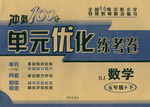题目内容
On each side of the street _______a lot of trees.
A. stands B. stand C. is standing D. are grown

 云南师大附小一线名师提优作业系列答案
云南师大附小一线名师提优作业系列答案 冲刺100分单元优化练考卷系列答案
冲刺100分单元优化练考卷系列答案
| |||||||||||||||||||||||||||||||||||||||||||||||||||||||||||||||||||||||||||||||||||||||||||||||||||||||||||||||||||||||||||||||||||||||||||||||||||||||||||||||||||||||||||||||||||||||||||||||||||||||||||||||||||||||||||||||||||||||||||||||||||||||||||||||||||||||||||||||||||||||||||
There is a saying in French—“Si vieillesse pouvait, si jeunesse savait”—which means roughly “if age had the ability, if youth had the knowledge.” I was reminded of this saying the other day when I saw an interview with a distinguished Asian neurosurgeon(神经外科医生), now retired, about the impact of computer technology on modern surgery.
He was referring to the difficulty people of his age had in using the new techniques, but also to the fact that younger surgeons, who are more comfortable with the technology, lack some of the wisdom of experience.
It struck me that this problem is not just confined(局限于) to specialized fields such as medicine, but is widespread in modern life. There are many areas where the rapid growth of technology has widened the generation gap.
Young people are at ease with modern technology and propose all sorts of ways for using and developing it. But they often lack the experience needed to see further into the future to the possible dangers that a particular development may cause.
Older people see all sorts of difficulties and dangers, but are sometimes ignored, or even accused of being against progress, if they point out potential problems. Equally, they may see potential uses, but not have the technical skills to put them into practice themselves or the trust in the younger generation to do so.
Enthusiasm and inexperience come into conflict with caution and arrogance, usually with unsatisfactory results for both sides.
What is needed is the development of a partnership, based on mutual respect, which can deliver real progress by combining enthusiasm and caution in a constructive way, rather than in conflict with each other. The old need to give the younger generation the time, the resources and, above all, the authority to develop new ideas and use their skills. In exchange, the young need to turn more actively to the older generation to seek their advice and exploit their greater experience of the world in foreseeing and overcoming potential problems.
【小题1】The passage is mainly about ________.
| A.the impact of computer technology on modern surgery |
| B.an interview with a distinguished Asian neurosurgeon |
| C.new generation gap between the old and the young |
| D.a conflict between knowledge and experience |
| A.introduce the topic |
| B.show the difference between French and English |
| C.make readers confused |
| D.prove the writer’s wisdom |
| A.Old people’s enthusiasm in obtaining new technology. |
| B.Old people’s difficulty in using computers. |
| C.Young surgeons’ bad manners in working. |
| D.Young surgeons’ difficulty in getting experience. |
| A.They are happy with modern technology. |
| B.They are easy to learn new techniques. |
| C.They can foresee the future of the young generation. |
| D.They are rich in work experience. |
| A.The young and the old should respect and learn from each other. |
| B.The young should teach the old modern technology. |
| C.The old should maintain their authority in every field. |
| D.The young and the old should work independently. |